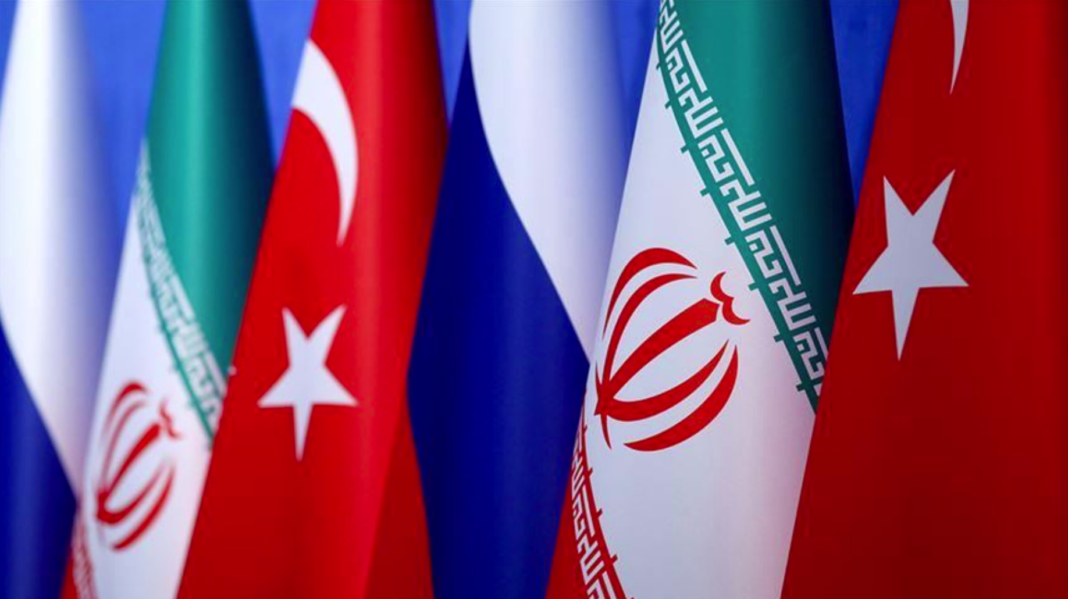« Turkey-Russia ties are very important and Ankara would like to find a way to meet with Damascus without angering the Syrian rebels too much. » Seth J. Frantzman analyzes in The Jerusalem Post on February 4, 2023.
Russia would like to bring together Turkey, Syria and Iran in some kind of a historic meeting.
This could be a step towards normalization between Syria and Turkey. Turkey and Russia have been working on energy talks and Turkey has acquired the S-400 from Russia, but for Russia, a shift in Turkey’s policies in Syria would be a major game changer. Turkey is a member of NATO but has worked to block Sweden and Finland from joining NATO, which potentially helps Russia.
« The timeframe for a meeting of the foreign ministers of Russia, Syria and Turkey has not been negotiated yet, but consultations on this issue continue, » Mikhail Bogdanov, Russian deputy foreign minister and Special Presidential Representative for the Middle East and Africa, said, as per Russia’s state media TASS.
« We are working on the issue of holding a ministerial meeting; we held consultations with delegations from Syria and Iran, and are in contact with our Turkish partners through the embassies. This work continues. But there is no timeframe yet, » the official told TASS.
According to this report, there are ongoing discussions about some kind of planned meeting in February. However, it is unclear what might take place. Russian, Syrian and Turkish defense ministers met in Moscow in December, a clear signal that Turkey is warming in its ties to both Moscow and Syria.
Turkey is warming in its ties to both Russia and Syria
Russia wants to bring together top diplomats from various countries and this would then potentially lead to a meeting of the presidents of the various countries. It is not clear if Iran will be involved.
Iran, Turkey and Russia have met regularly since 2016 as part of the Astana process, which was designed to reduce conflict in Syria. This enabled the Syrian regime to make many advances, with Russian and Iranian backing. In exchange, Turkey moved into parts of northern Syria and turned the Syrian rebels into proxies. Then Turkey redirected the Syrian rebels to fight the US-backed SDF and the Kurdish YPG. In essence, Turkey’s policy since 2015 has been to defeat the Kurdish YPG in Syria. Toward that end, it shifted the Syrian rebels from fighting the Damascus regime to fighting the YPG and the US-backed SDF.
Under this complex brinkmanship, Turkey was able to move forces into Idlib and an area near Manbij and then it launched an invasion of Afrin. Meanwhile, the Syrian regime, with Iranian and Russian backing, retook southern Syria and other areas of the country, so that by 2018 it had firm control of the populous parts of the country, with the exception of the north, where Turkey is present, and eastern Syria, where US forces are present.
A key policy for Russia was to encourage Turkey to fight the US, and it got what it wanted in late 2019 when Turkey attacked the SDF and demanded the US leave Syria. Since then Turkey has claimed it will launch more invasions. For Russia, an ideal would be for the US to leave, under pressure from Turkey, and then have the Syrian regime swoop into areas such as Hasakah and other parts of Eastern Syria where the US is present.
The key issue though is how Russia can abandon the Syrian rebels and hand over their areas to the regime without creating problems at home where millions of Syrians reside in Turkey. With elections in Turkey, the ruling party may not want chaos in Syria.
Nevertheless, Turkey-Russia ties are very important and Ankara would like to find a way to meet with Damascus without angering the Syrian rebels too much.
The Jerusalem Post, February 4, 2023, by Seth J. Frantzman.

